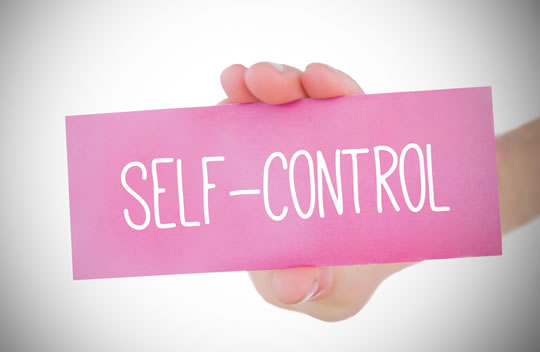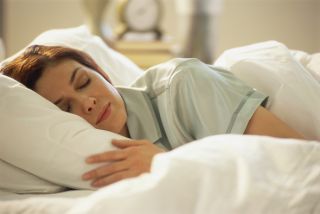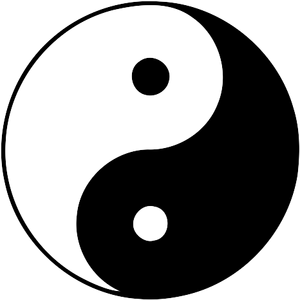To effectively wake up early, you'll have to reset your sleep schedule, develop effective waking-up-early habits, and become more of a morning person than you currently are.
Method 1 of 4: Retraining Yourself
Pick your goal wake-up time. If you'd like to get good at being ready and raring to go by 6 AM, here's your goal. This will be the goal you're working toward every day of the week. You're going to do it gradually, though, as to avoid shocking your system.
You can also try
conditioning your body to need less sleep if passing on those night hours is like giving up your first born child. It's the same idea, but with maintaining a set bedtime.
Get excited. In order to hop out of bed in the morning with gusto, you may need something to hop out of bed for. So find something to get excited about! If nothing comes to mind, use this experiment as something to do full-force. After all, the path to new, more productive habits is certainly something to be proud of.
What do you have going on in the next day that you can't wait to get up for? Its size does not indicate its efficacy -- small things work just as well. Even getting excited for the morning's cup of joe works! Yum. Can you almost taste it?
Get ready for the benefits. Waking up early is linked to a bunch of different, positive things. Research says that early risers get better grades, are generally more proactive, can anticipate problems and plan better than their late-rising counterparts.
[2]Hope you can handle your own impending awesomeness.
It's sort of a chicken before the egg thing. Early risers have more time for exercise, family, and more quiet time at the office (and an easier commute).
[2] Is sleep making their lives better or do they sleep better because they have good lives? Try it out for yourself!
Mentally prepare yourself to wake up early. Run through your morning routine in your head so that you have a game plan for the early hours. If you have a plan, you won't need to think about it--just move.
If you need to be out the door and on your way at a certain time, think about how much time you'll need for each step of your morning routine. Consider what, if anything, you can cut out of your routine to streamline the process: do you need that shower, or that cup of coffee?
As you lay in bed, drifting off to sleep, tell yourself: "I need to wake up early tomorrow. I need to wake up at 5 a.m., make a pot of coffee, shower, shave, and be out the door by 5:45. It'll take me twenty minutes to drive to the airport, ten more minutes to get set up in the long-term parking lot, and another fifteen minutes to walk to the security check. I can grab a quick breakfast in the terminal before my flight leaves."
Method 2 of 4: Sleeping Better
Start a nighttime routine. Our bodies need to program down, in a sense. The rush of the day has us into human-sized Energizer bunnies and we can't just go from 60 to 0 in a heartbeat. Your routine should be whatever appeals to you, but it should be daily (to serve as a cue to your body) and take at least 15 minutes.
The routine can consist of showering, drinking warm milk, listening to classical music, or doing relaxing exercises such as yoga or Pilates. If you read, make sure to read without any bright lights (more on that later). Designate your bedroom for sleeping only. Refrain from any strenuous activities right before, as this will inhibit comfortable sleep time.
Dim the lights about an hour before you go to sleep. Bright lights can suppress the hormone melatonin, which can lead to sleeplessness and suppress the "tired" feeling.
[3][4] Try to turn off TV screens, laptop monitors and the like an hour before you want to go to sleep.
The science behind it is that all these bright lights are messing with our body's internal clocks. When you're sitting in front of a computer, TV, and phone until 2 AM, your body has zero ideas as to what's going on; it could be 2 AM or 2 PM for all it knows. Turning off the lights lets your body realize, "Ahh, it's bedtime. Shutting down!"
Get a decent amount of shut-eye. It's a simple truth, but that doesn't mean it's any less important: sleeping enough will help you wake up earlier. What are yours?
It's easier to wake up early if you've have the recommended amount of sleep during the night. Plan on getting:
7 to 9 hours of sleep for men.
[5]8 to 9 hours of sleep for women.
[5]9 to 10 hours of sleep for pregnant women.
[5]10 to 12 hours of sleep for children and the elderly.
[5]Sleep with the curtains half-open. Sleeping with the curtains half-open could help your body to stop producing melatonin while simultaneously ramping up production of adrenaline.
[6] This could help your body be ready to embrace the day by the time your alarm clock goes off.
You know how we just said light keeps you awake? Well, if you're asleep it awakens you. Crazy stuff, huh? The natural sunlight will be perceived by your body, even when you're asleep.
Sunlight can also warm your bed, letting the temperature tell you to get up, too. If that's possible, consider placing your bed in the right position in your room to utilize this effect.
Try to
fall back asleep if you wake up at night. Remain in bed to avoid awakening your body should you move around. However, if you're tossing and turning for over 20 minutes, get up. Do a relaxing activity (like reading or stretching) until you feel you can go back.
Getting up in the middle of the night could be the symptom of a larger problem. Evaluate your habits and your environment. If you're doing everything right (you'll know by the end of this page), consider seeing a doctor. You may have a sleep condition that he/she can help with.
Adjust the temperature. Most doctors will tell you to keep the room somewhere between 65 and 72 degrees Fahrenheit (18 to 22°C).
[7] However, what's comfortable for one person may not be comfortable for another. If you have any trouble sleeping, consider messing with the temperature. You may find your sleeping woes to vanish at the click of a button.
If you're not sleeping alone, utilize layers or the lack thereof. Try to find a common ground where you're both negotiating. Worst comes to worst, there's always heating blankets!
Method 3 of 4: Waking Easier
Put your
alarm clock away from your bed. When it's out of reach, you're forced to get out of bed. Putting it next to your bed is just a temptation to hit the snooze button and fall back to sleep -- for 9 minutes. Not helpful at all.
Consider getting a new one. There are tons of alarms with different tones. Maybe yours isn't working for you, in which case, consider a new one.
[8]Be considerate of roommates and housemates. If you're sleeping in the same room as someone, tell them your plan to wake up early, and ask their permission to set an alarm. This way, they can prepare for the alarm--with earplugs, or opting to sleep somewhere else for the night--and they won't be startled awake in the morning.
Avoid snoozing your alarm clock. As soon as the alarm rings, get out of bed to start your morning. You will eventually awaken and feel better that you've persevered through morning drowsiness. Jump out of bed (as much as is feasible) and think about tackling your inevitably awesome day.
Snoozing won't make you feel more rested. Scientists have found that you don't get the more restful, REM sleep while snoozing, making this guilty pleasure especially wasteful for your wakefulness. In fact, you'll just feel worse.
[9]Wake up your senses. Once you've gotten out of bed, give yourself that much-deserved pick-me-up. It could be a cup of coffee or tea (that brewing smell will be sure to get you going), a cold glass of water, or a nice shower. Whatever it is, make sure it awakens one (or more) of your senses. When your body and mind are stimulated, you'll automatically wake up to take it in.
Light and sound work, too, in addition to taste, smell, and touch. Throw open the curtains, turn on some music, and get your day off on the right foot. The better the morning, the better the afternoon and evening!
Method 3 of 4: Waking Easier
1
Put your
alarm clock away from your bed. When it's out of reach, you're forced to get out of bed. Putting it next to your bed is just a temptation to hit the snooze button and fall back to sleep -- for 9 minutes. Not helpful at all.
Consider getting a new one. There are tons of alarms with different tones. Maybe yours isn't working for you, in which case, consider a new one.
[8]Be considerate of roommates and housemates. If you're sleeping in the same room as someone, tell them your plan to wake up early, and ask their permission to set an alarm. This way, they can prepare for the alarm--with earplugs, or opting to sleep somewhere else for the night--and they won't be startled awake in the morning.
2
Avoid snoozing your alarm clock. As soon as the alarm rings, get out of bed to start your morning. You will eventually awaken and feel better that you've persevered through morning drowsiness. Jump out of bed (as much as is feasible) and think about tackling your inevitably awesome day.
Snoozing won't make you feel more rested. Scientists have found that you don't get the more restful, REM sleep while snoozing, making this guilty pleasure especially wasteful for your wakefulness. In fact, you'll just feel worse.
[9]3
Wake up your senses. Once you've gotten out of bed, give yourself that much-deserved pick-me-up. It could be a cup of coffee or tea (that brewing smell will be sure to get you going), a cold glass of water, or a nice shower. Whatever it is, make sure it awakens one (or more) of your senses. When your body and mind are stimulated, you'll automatically wake up to take it in.
Light and sound work, too, in addition to taste, smell, and touch. Throw open the curtains, turn on some music, and get your day off on the right foot. The better the morning, the better the afternoon and evening!
4
Try to wake up at the end of a sleep cycle to minimize grogginess.
When you sleep, you cycle between REM (Rapid Eye Movement) sleep and non-REM sleep. Non-REM sleep comprises three stages: N1 (Transition to sleep), N2 (Light sleep), and N3 (Deep sleep). You usually slip into REM sleep 70 to 90 minutes after falling asleep, and this is when most of your dreams occur.
[10]Each sleep cycle lasts roughly 90 minutes, and repeats four to six times over the course of a night. If you are awoken in the midst of N3 deep sleep, you may feel groggy and disoriented. You want to wake during the lighter, more active stages of sleep, especially REM or N1.
Try setting a wake-up time that's a multiple of 90 minutes away from the current time.
Consider using a sleep-cycle calculator like
[1] to plan out the best time to wake.
Method 4 of 4: Lifestyle Changes
Exercise early enough in the day. Many doctors believe that getting in a moderately-intense cardiovascular workout during the afternoon helps people get to sleep at a reasonable time.
[11] So go to the gym, join a basketball team, or bust out the dusty treadmill you've been telling yourself you'd use. It'll help you get to sleep earlier.
Try not to exercise later on at night. Exercising late at night raises your body's core temperature. Since sleep is thought to be brought on by a drop in the body's temperature, late-night exercise may be detrimental to an early night's sleep.
Avoid drinking
caffeinated drinks at night. It will keep your body awake and ultimately cause insomnia. Limit your daily consumption to less than 500 mg per day.
[12]A grande brewed coffee from Starbucks has 330 mg of caffeine.
[13] Red Bull clocks in at a decent 80.
[14] Just for the record.
Get more sleep on days after you under-sleep. People need more sleep the next day when they fail to get enough sleep the previous day(s).
[15] So if you got only 5 or 6 hours of sleep on Monday (which you shouldn't, usually), be diligent about getting 10 to 11 hours of sleep on Tuesday to compensate for your deprivation. Otherwise, you could be feeding a vicious cycle of sleepiness every morning.
Don't nap for long periods of time during the day to make up for it, however. The closer it gets to actual bedtime, the more devastating a nap can be. If you need to take a nap, try to make it before 3:00 PM, and limit it to under 45 minutes.
[4] That'll provide the most rest while still giving you a good chance of falling asleep quickly later at night.
Method 4 of 4: Lifestyle ChangesAvoid eating large meals before bedtime. Not only does the rush of flavor wake you up, but once you do hit the sack, you may have a hard time staying there. Not only is it bad for your waistline, but it's bad for the next day's energy, too.
[16]Your digestion slows down when you sleep and eating a big meal beforehand makes you susceptible to heartburn (in addition to the trips to the bathroom). Going to bed in a near food coma makes it difficult to initially fall asleep, too. So it's best to just avoid it.
Tips
If you are drowsy in the morning, take a cool shower. This will raise your blood pressure and considerably awaken your body.
Before bed, tell yourself that you are going to wake up early. This often helps and you might find yourself waking up earlier then usual.
Read a book! Not a boring one, but your favorite. Your brain will automatically undergo shut-down once it gets tired from all the reading. This is will help you sleep faster.
Keep a consistent sleep schedule. Fall asleep and wake up at the same time every day.
Do physical exercises that stimulate your body. Push-ups, jumping jacks, and lunges are great for ridding morning fatigue.
If you're having trouble waking up in the morning, splash your face with cold water, or before you go to bed, put 2 spoons in the freezer and in the morning when you wake up, hold them on your eyes for about 1 minute. This really helps to open up your eyes and wake you up.
If you use a phone or electronic device as an alarm clock, make it a strange, catchy, jazzy tune that wakes you up. Also be sure to change up the alarm often so that your body does not learn to sleep through it or begrudge waking up to it.
When you wake up, go straight to the bathroom and wash your eyes and face with cold water. The abrupt chill of the water will help reduce grogginess a bit faster and bring your nerves and senses to life.
Try finding the amount of sleep that is right for you. Some people only need seven hours of sleep and feel energized in the morning. Find a week or weekend that you can go to sleep at different times and wake up at the same time. See how energized you are when you wake up.
Try Morning Matches for a lift when you are first trying to become more of a morning person. The supplement helps you physically get out of bed. You can purchase them on Amazon.
Get out of bed slowly so you won't get dizzy.
As soon as your alarm goes off, get out of bed and start on your day. It's helpful to talk yourself through the day because it keeps your mind moving towards things later in the day so you can tell yourself that you are not tired. If you constantly are reminding yourself of your day plans and insisting you aren't tired, the tiring morning hours will fly right by.
Make sure you put the alarm clock on and avoid hitting the snooze button and going back to sleep. You can get an alarm clock that vibrates in your bed or near to you , this helps a lot of deaf children too. Children and the elderly, can also use it but beware of babies as they might cry in the middle of the night or morning!
Do not sit down in your bed once you're up, for you might fall asleep!
Put your alarm clock on the other side of the room so that you have to get out of bed to turn it off.
Sleep well on the previous night. Try to go to bed early and read for a short while.
Before you go to bed, drink some milk, read or do some other relaxing activity.
Select your alarm tone to the most exiting sound you can imagine short of something terrifying. This will help you to wake up early, even if it is only just by startling yourself.
If you put an alarm on your phone, you can put a picture you love the most on the background that will help you start of with a good day.
Motivate yourself to wake up earlier. You should have a purpose to get up, make it vivid.
Make your bed immediately after you wake. This will prevent you from sleeping again.
When you wake up stretch out your body so that your muscles wake up too. Just don't stretch too hard or you could pull one!
If your alarm is set on a phone, see if you can turn the snooze off. Then, there will be no snooze button so you can't be tempted to push it.







